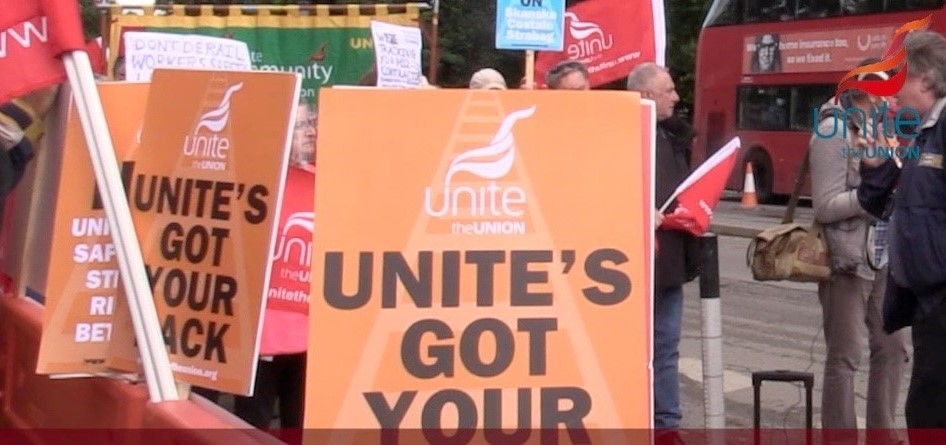‘Constant sense of worthlessness’
Concluding the long-running blacklisting case, the High Court heard today (May 17) statements from individual workers describing how blacklisting ruined their lives.
From family breakdown to financial hardship and depression and anxiety, the Court heard how workers had had their lives turned upside down after they were unknowingly placed on a blacklist by major construction companies, often because of their trade union activity.
Unite settled the most recent blacklisting case earlier this week (May 14), with 53 workers set to receive £2m in compensation As part of the settlement, workers voiced their anger at construction companies Balfour Beatty, Costain, Kier, Laing O’Rourke, Sir Robert McAlpine, Skanska UK and VINCI, whose collusion effectively locked them out of employment in the industry for years.
‘Terrible friction’
Among those whose statements were read was one from electrician William Barclay, who believes he was blacklisted in 1999. He couldn’t find work for months at a time, despite countless job applications.
His inability to find work caused “terrible friction” with his partner, who blamed him for his joblessness. He was effectively ripped apart from his family, unable to travel the 170 miles to visit his daughters who lived in Falkirk because he couldn’t afford the petrol.
Another construction worker, carpenter Robert Brown, believes he was blacklisted from 1984. He could not understand why he was suddenly not getting any responses to job applications, despite there being an abundance of work available.
Brown highlighted major construction work on Broad Street in Birmingham, which employed thousands of workers. Despite being a skilled and experienced carpenter, and applying for jobs on a number of projects, he was denied at every turn.
He eventually secured a job with Birmingham City Council jobbing as carpenter, but when he was made redundant in 1998, he hit rock bottom – for the next decade he would be on unemployment benefit.
The Court heard how Brown’s “self-esteem and confidence suffered, his social life and trade union activities were impaired; he became anxious and he faced the humiliation of being called a â€layabout’ despite his numerous job applications.
“He had a constant sense of worthlessness because he had a trade and it vanished,” Brown’s court statement read.
Of the twenty workers whose statements were read in open court today, their stories all highlighted the family breakdown they suffered as a result of failing to find work – with some marriages ending in divorce.
Some workers were forced to find work abroad, with one worker travelling as far as Hong Kong, where he secured jobs with relative ease – but at the cost of being separated from his family. Others told of missed family holidays, Christmases without presents, rationed meals, and second-hand shoes for their children riddled with holes.
Joiner David Dunn’s statement described the indignity David suffered being forced to queue for handouts, and being questioned about how many children he had before he would be given free butter and tinned beef.
Others found they had no other option but to take up a totally different line of work than what they had been trained to do – metal worker John Phillips became a market trader selling greeting cards, but it didn’t bring in enough money to live on.
Workers described their anger and disgust at learning they were blacklisted, in some cases decades after they first struggled finding work. Reading their files held on the blacklist after they discovered the truth, workers would find that they were labelled â€trouble makers’ for their trade union activity or for raising health and safety concerns. Others were entirely wrongly listed as being trade union reps, while some were marked for having â€left-leaning tendencies’.
‘Emotional day’
All workers today highlighted in their statements their gratitude to Unite, whose support they said was instrumental in their fight for justice.
Unite assistant general secretary Howard Beckett said the court hearing was “an emotional day, hearing the statements of those whose lives were destroyed”.
He called it a “day of shame for the employers” and noted that Unite was pleased the court asked them to stay to hear the statements read despite their requests to leave.
“There is no doubt Unite extracted the maximum from a court system that is weighted in favour of the defendants,” Beckett said. “We’ve achieved millions in pounds in compensation. We’ve got money set up for a training fund, and secured the statements in open court.”
But Beckett said that the fight for justice isn’t yet over.
“What we haven’t achieved is construction companies giving evidence,” he added. “We need a public inquiry for that to happen and that’s why our call for a public inquiry continues. The truth must be heard — those whose lives have been destroyed deserve that truth.”
 Like
Like Follow
Follow

